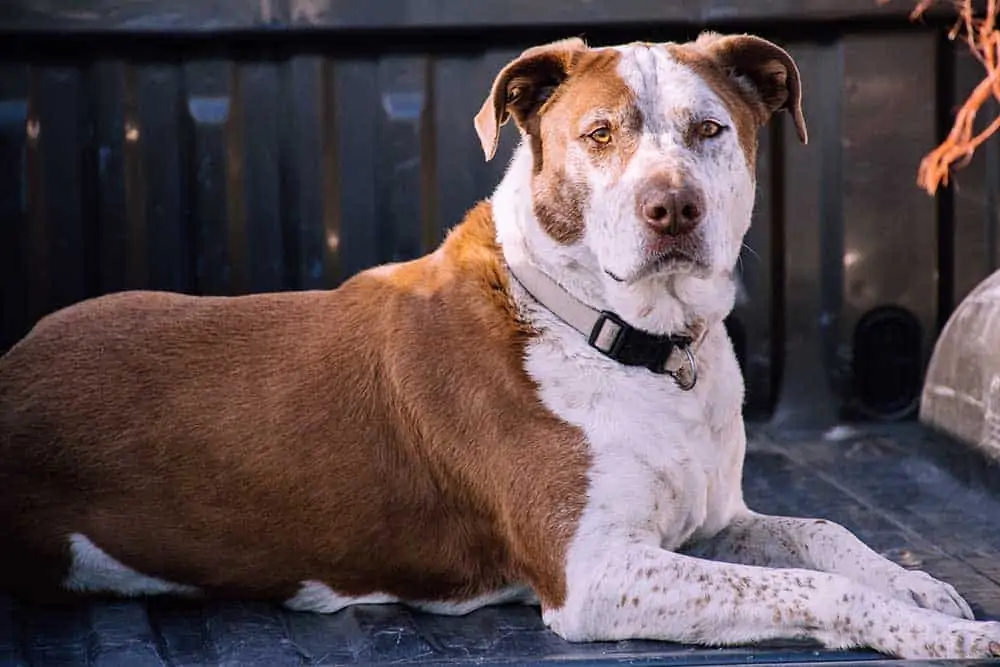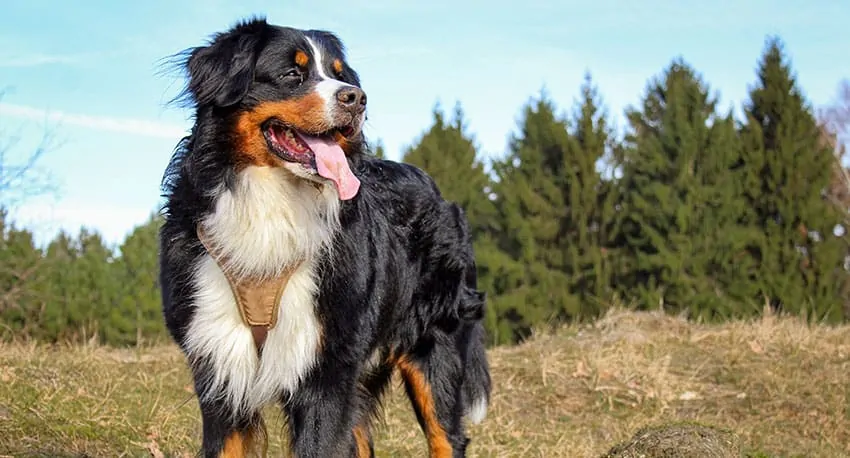My Dog Ate Drywall – What to Do?
Drywall is the popular name of a building material used in homes all over the country. Made from gypsum and glue, it has been the standard for interior walls and ceilings since about 1920.
Unfortunately, some dogs will find it a potentially appetizing treat to chew at. Not only is this a headache for your home, but your pup’s health might also be at risk. Here is what you should know if you are facing a similar situation

What happens if my dog eats drywall?
Dogs often develop an affinity for certain foods by accident. The drywall will not necessarily cause harm directly. The biggest concern with your dog eating drywall is the development of an intestinal blockage. Within the digestive system, it can start to swell and form a blockage as the dog digests it in high amounts.
What should I do if my dog eats drywall?
If your pet accidentally eats any drywall, it’s important to watch them closely and keep them away from the drywall area. You don’t want them to inhale the drywall dust or continue to eat more of it.
Look out for changes in your dog’s behavior. If you notice your pup vomiting, coughing, having diarrhea, or exhibiting other signs of illness, call your veterinarian right away.
When in doubt, call your vet anyway and follow their advice to the letter.
Take up any pieces of drywall that may come loose naturally during the day and seal up the rest in a bag for disposal later. Keep your dog in another part of the house while the drywall is exposed.

Is Drywall Toxic?
Drywall itself is non-toxic for dogs or humans. The biggest threat is possible intestinal issues if allowed to swell in the stomach. However, certain types of material such as overseasChinese drywall and drywall exposed to asbestos are a health concern.
Chinese Drywall
This dangerous type of building material was used in homes between 2001-2009. An investigation from the US Consumer Product Safety Commission found that chemicals used in manufacturing Chinese drywall were causing damage to homes. Though cases have been declining as homes are repaired, there is still a concern for those living with Chinese drywall.
Pyrites in the drywall are the chemical responsible for much of the damage to homes. This can cause respiratory issues in humans and dogs, skin irritations, eye problems, and corrosion of copper pipes in homes with plumbing. It is still unknown how healthy it may be to live in a home with Chinese drywall.
Asbestos
Drywall exposed to asbestos is extremely dangerous if inhaled or ingested by your dog and requires vet attention immediately. If you suspect this type of drywall in your home – whether through older construction or modifications – call your plumber and contractor before investigating yourself. Dogs mustn’t continue to chew on the walls and spread fibers around your house and into their lungs.

Will There Be Long-term Health Issues After Eating Drywall?
A dog will not have any long-term health effects from the drywall itself unless the intestines get blocked, which can require surgery to correct. Intestinal blockage can result from the consumption of any non-food objects consumed by your pup.
An untreated intestinal blockage in your dog can be life-threatening and will require an immediate visit to the vet.
Here are some signs your dog is experiencing intestinal blockage:
- Vomiting
- Diarrhea
- Blood in stool
- Loss of appetite
- Lethargy
- Whining
- Whimpering or crying
- Sitting in a “prayer like” position
- Restlessness
Regarding the prayer position, the dog will start to sit with its front legs stretched out in front of it. It will lean forward on the forelegs with its head resting on the floor. The rear is up in the air. This is the same physical position a dog may take when it is about to attack.
If you notice any of these signs, take your dog to the vet immediately. It is important not to try and make them vomit before going, as it can cause more problems than it solves. The drywall might swell up even further after vomiting due to the added stomach acid and increase the risk for intestinal blockage.
Can My Veterinarian Help?
Bring a sample of the drywall with your dog to the vet. If there is a chance it is Chinese drywall or other material containing asbestos, do not touch it yourself. Your doctor will know what to look for and should start treating your pet immediately if you suspect an intestinal blockage.
Your vet may tell you to simply continue to monitor your pup at home. If necessary, the vet may induce vomiting in the dog at the office. Once the drywall has moved into the small intestine, the vet may have to go in and remove it with abdominal surgery.

What Do I Do After My Dog Has Been Treated?
If your veterinarian determines that your dog has ingested drywall, they may give them some medication to lower their stomach acidity and make digestion easier. This should take about 24 hours, after which time the drywall should have been dissolved enough to pass without further problems.
You must watch your dog carefully during this period as well – especially if they ate anything else along with the drywall that might cause additional blockages. As stated earlier, keep the dog away from any more drywall.
After this point, even if you notice your dog feeling better and getting back to their routine, take them in for a check-up to ensure everything came out okay afterward.

Do Dogs Enjoy Eating Drywall?
While many dogs will eat nearly anything they can get their paws on, there’s no evidence that drywall is a delicacy or tasty treat. In most cases, this ingestion is accidental.
However, chewing on walls can also happen if a pup gets bored while alone indoors for extended periods, so make sure you leave plenty of toys and activities around for them to enjoy.
An anxious or stressed dog sometimes chews out of frustration. So you may want to spend more time playing with your pooch when they are feeling this way too. Your dog may also need some behavioral training or therapy.
In conclusion, dogs often eat things they shouldn’t – including drywall. Although it may not be toxic, it can cause intestinal blockages that require an immediate visit to the vet.
If your dog has eaten drywall or other strange objects, watch them closely to make sure they don’t experience any additional discomfort. When in doubt, take them to the vet immediately so you can get your pup checked out safely and quickly.